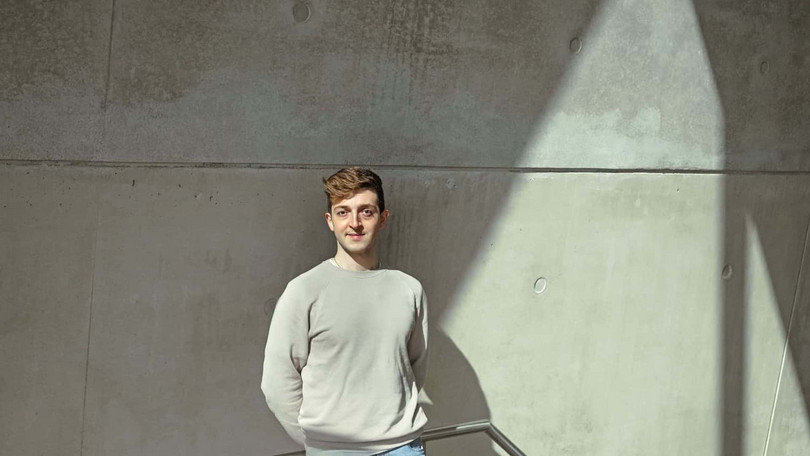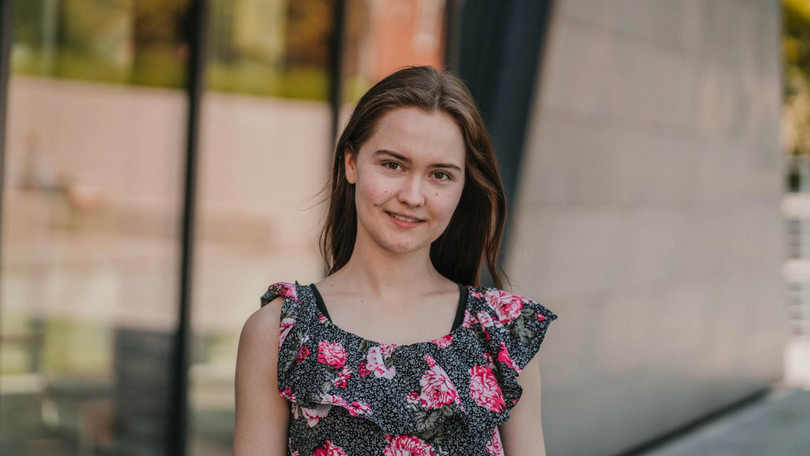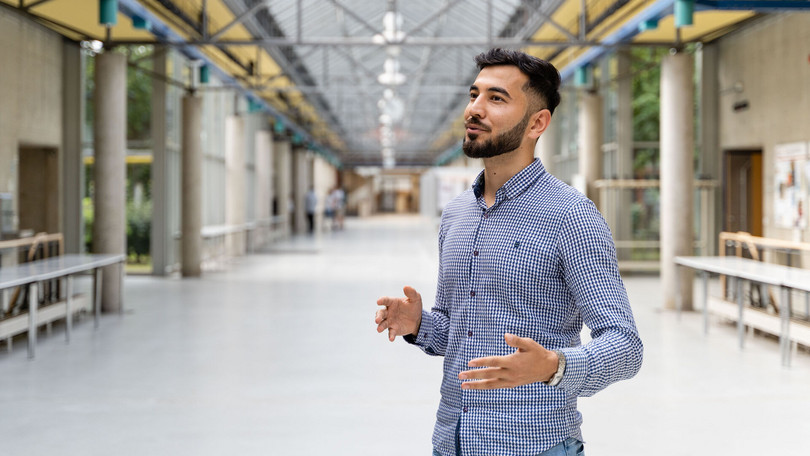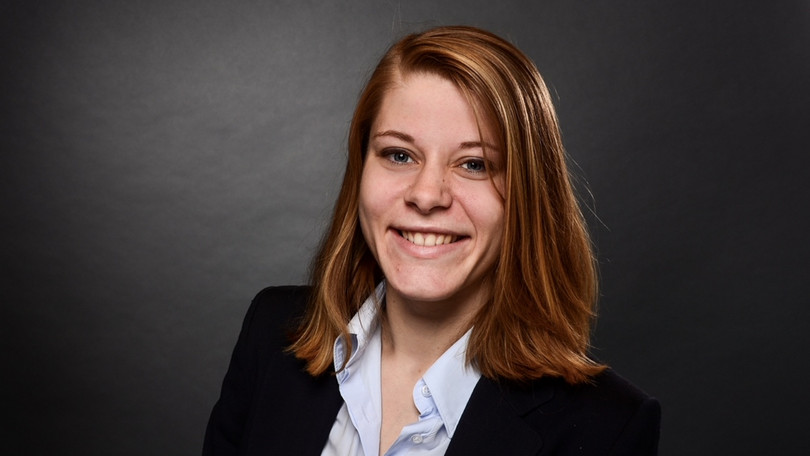Student and Alumni experiences - Management & Data Science
On this page you find experiences of current and former students about the Masters Management & Data Science at Leuphana Graduate School.
Ilkin's experiences
22.03.2022 The native Georgian studied business in Beijing and is now completing the Master's programme "Master & Data Science" at the Graduate School. Now the 27-year-old gained insights into two German companies with the support of the Career Service.
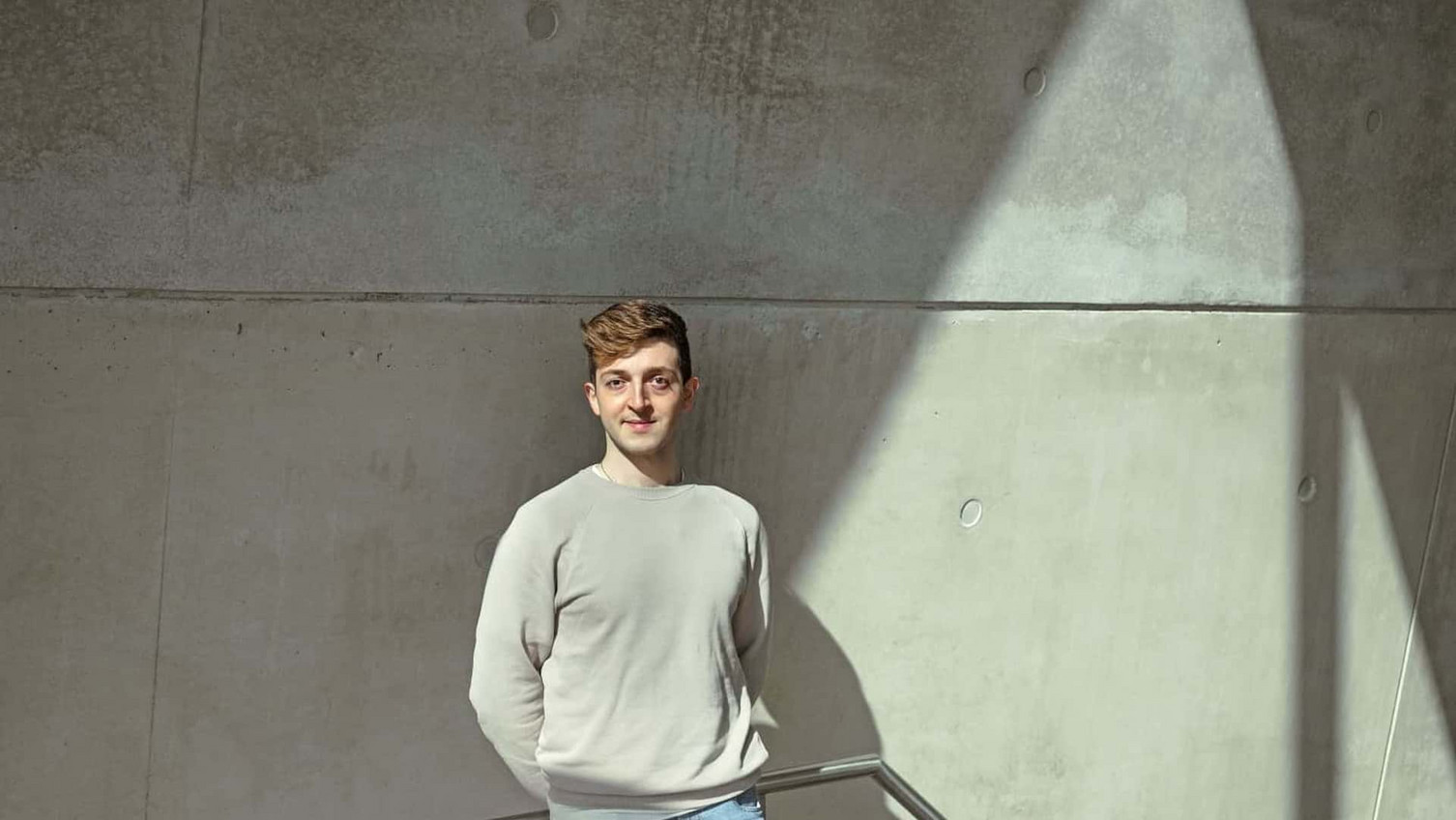 ©Nastja
©Nastja
llkin Bakhtiarov comes from a family of entrepreneurs. China is an important business partner for his parents. So it was only natural for him to want to study in Beijing. "It was an exciting time. But a metropolis with 20 million inhabitants can also be exhausting." During a semester abroad in Pforzheim, llkin Bakhtiarov got to know Germany and started looking for a suitable university for his Master's degree. He came across Leuphana: "I really liked the master program, and wanted to escape to greener and calmer city" he says. He can complete his studies and many other offers in English. "Job Shadowing International was an interesting opportunity for me to look into the everyday life of German companies."
During two one-day visits, llkin Bakhtiarov looked behind the scenes at a large beverage manufacturer and was a guest at a tech specialist in Lüneburg. "In our studies we deal a lot with theory. At the job shadowing, I was able to see how my knowledge from my studies is applied in practice. At Adference in particular, the business model was based on data science, which is exactly what I studied." The marketing company was founded by Dr Burkhard Funk, Professor of Business Informatics, in particular e-business, among others. At Coca-Cola, llkin Bakhtiarov learned how data is obtained within a production process. Because of the Corona pandemic, job shadowing could only take place in compliance with hygiene rules and was partly carried out digitally.
For the 27-year-old, the Job Shadowing International, which came about as part of the ESF-funded project "Regional Perspectives - From University to Work", was helpful because of his concrete career plans: "After I graduate, I would like to work as a data scientist in Germany. That's why it's good that I've already been able to gain insights into German corporate culture." But llkin Bakhtiarov thinks job shadowing is also worthwhile for internationals who don't want to stay in Germany: "You make contacts and bring fresh ideas back home."
Author: Dr. Marietta Hülsmann
Friederike's experiences
09.06.21 Friederike Baier is studying Management and Data Science at the Graduate School in the second Masters semester, and her great passion is theatre. Supported by the Language Centre, she wrote a play about a special encounter on the train. In mid-May, she took part in the FEATS international theatre festival in Brussels.
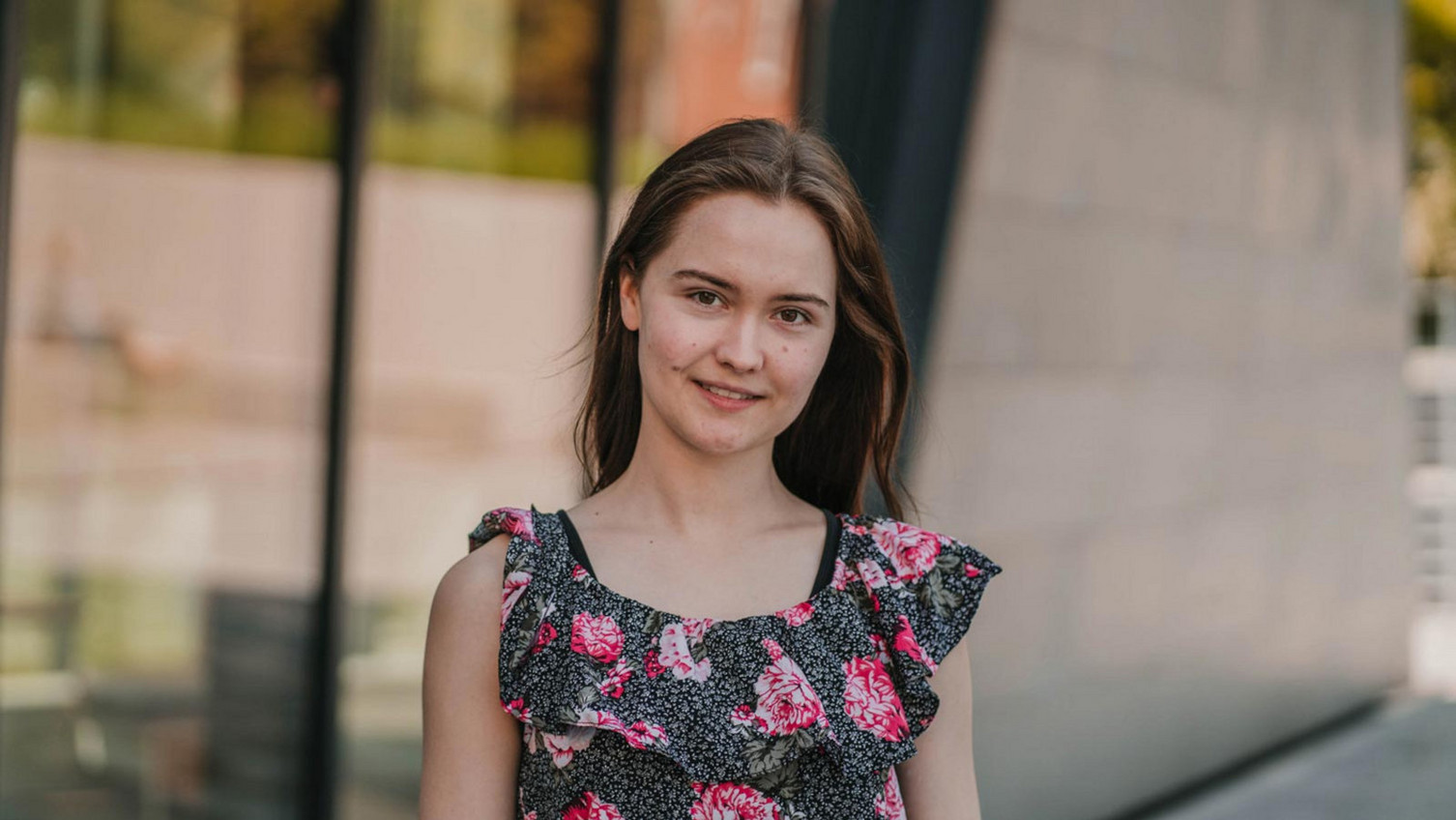 ©Leuphana/Marvin Sokolis
©Leuphana/Marvin Sokolis
"The process of creating a play is like getting to know a person: piece by piece, a character or a situation gains sharpness the more details are added to it. They give a place a certain emotion and a scene its special atmosphere," describes Baier about her writing process. The student, who commuted a lot herself during her Bachelor's degree, describes an encounter on the train in her piece "Confab".
"Sometimes it's easier to talk to a stranger, a person you may never see again," says the protagonist. The play is written in everyday, unstated language, which makes the scenes seem real and tangible. There is no elaborate stage set, music or lighting. The focus is on the two actresses and their connection: Two young people on a crowded train meet while looking for a seat and finally find a place between mountains of suitcases on the luggage track. Although one of them wanted to read in peace, the other starts a conversation, first asking banal questions, later becoming more and more profound. The situation is anonymous, a fleeting encounter, and the two do not exchange names either: "It's about this one moment. We talk to each other now, but it won't affect our lives. We will probably never see each other again. Precisely because we don't know each other, we can talk so openly about personal things," Baier comments on the plot. After initial reticence, the two protagonists reveal more and more about themselves, share thoughts about personal relationships, about goals and their world view. No concrete reference to the present is made; the threads of conversation are reminiscent of typical thought patterns that many audience members probably know from their twenties.
The play was developed in the course "Dramatize this!", a programme offered by the Language Centre under the direction of Maryann Henck. Baier appreciates the diverse range of courses at Leuphana and the opportunity to take courses outside her own degree programme. "I have always loved writing. So the course appealed to me because you had a concrete goal in mind and you also got feedback," the student says. The FEATS theatre festival was Baier's first time participating in a theatre event with a play she had written herself. "In the past, trophies were awarded in various categories during the festival, but this time it was non-competitive," says the student. In mid-May, the plays selected by a jury were shown at a Zoom conference, and "Confab" received much praise and encouragement from the audience.
Baier is not sure yet whether she will turn her passion into a profession in the long run: "Theatre will always be a part of my life and I really miss being on stage. I could imagine trying directing again now that I've gained experience with it. I also really enjoy Data Science and I'm grateful that many doors are open to me."
Author: Caroline Huzel
Narzullo's experiences
02.12.19 Narzullo Nasrullozoda took a new academic direction after his studies of Business Economics in Tashkent and London.
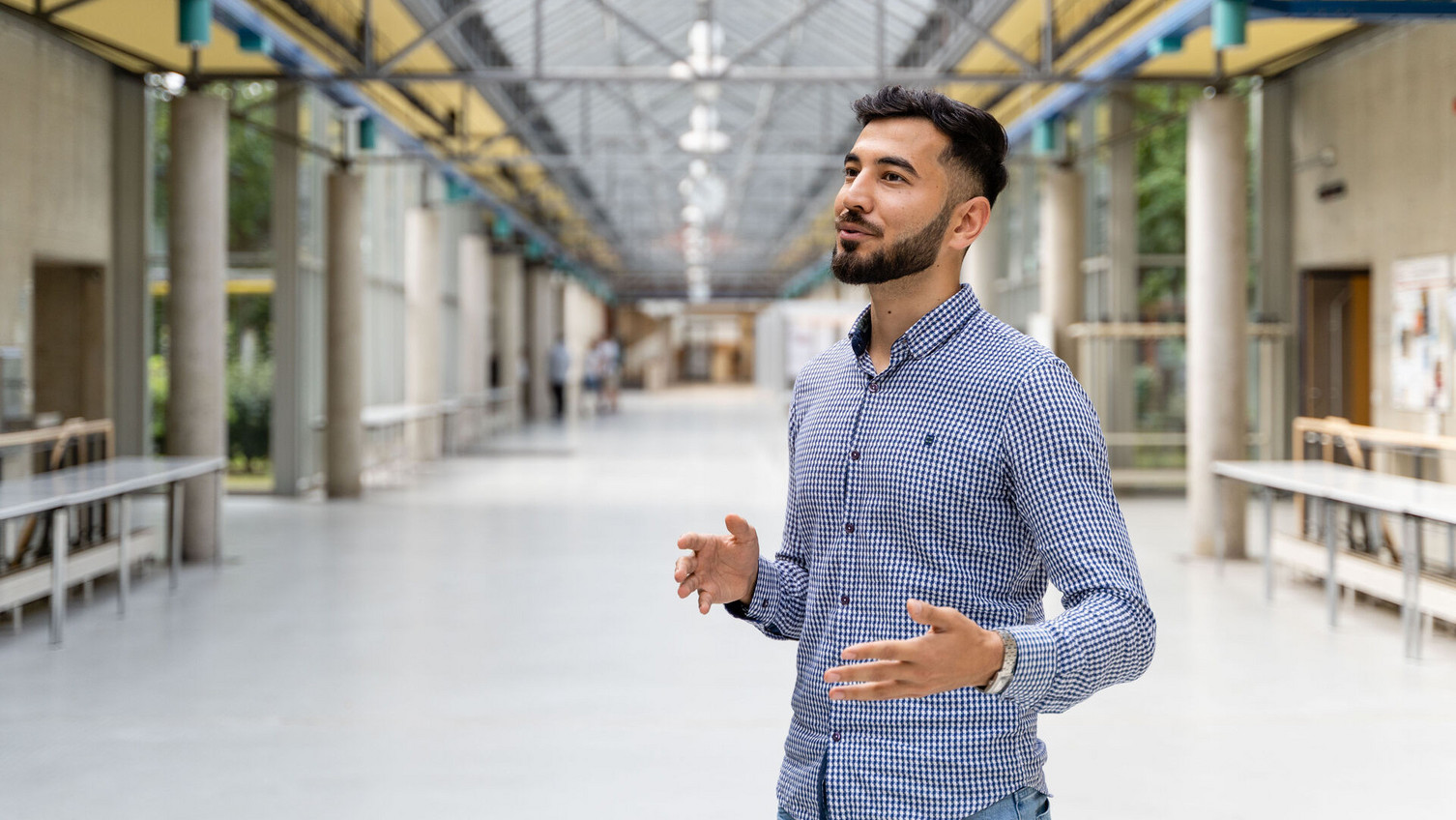 ©Leuphana/Patrizia Jäger
©Leuphana/Patrizia Jäger
What did you study before you started your masters at Leuphana Graduate School?
Before I started my Masters at Leuphana, I did a Bachelor of Science in Business Economics. I started my studies in Business Economics at Westminster International University in my hometown Tashkent, Uzbekistan. After two years, I decided to study the last year of my Bachelor degree in London at the main campus of the University of Westminster.
Why did you decide to do the Master programme Management & Data Science? Were there any criteria you followed?
After I finished my Bachelor, I read many articles that said that Data Science is the century’s science and highly demanded. Since my Bachelor in Business Economics was very theoretical, I wanted to get some practical skills, like programming. With a degree in economics, you are part of a big team in a company. However, as a data scientist, you can work very independently.
What expectations did you have before you started your Masters at Leuphana? Did your expectations been met so far?
I did not have many expectations. Because I come from the background of economics, I only had few previous knowledge about what Data Science is. However, I wanted to get skills that are more practical, for example learning programming. The Masters programme Management and Data Science offers some courses to learn the basics about programming languages like R and Python. The rest is up to the students so students should have the persistence and motivation to self-educate themselves.
How did you cope with the new disciplines of your studies?
In this programme, students should be able to work a lot independently. My impression is that the professor teaches about the overall topic and explains thoroughly how it works. A professor does maybe ten percent of the job for you – the other 90 percent is up to you. I was not used to this kind of system. Especially for me with an economic background, it was a bit challenging. In Data Science, you need mathematics, programming skills and some statistics to start. In the beginning, it was challenging, because I had to work a lot on my own with the computer and studied a lot. On top, I wanted to learn German. It was a kind of learning three languages at the same time. The first year was tough.
Leuphana understands itself as inter- and transdisciplinary university. How did you experience this in your study, for example in your complementary studies? Do you see this interdisciplinary orientation as something positive or negative to you?
Leuphana has a strong research focus in environmental sustainability studies and I had the choice to take some complementary modules concerning environmental issues. For instance, I had a module called “Transdisciplinary approach to soil threat”. The background of students in this module was very different. To be more precise, I met some students of the Masters programme Sustainable Science. We went to eat several times in the canteen and it was cool to learn more about environment from them. Thereby, I have become much more concerned about the environment than before. Besides, the interdisciplinary exchange happens in my programme, too, since we are coming from many different backgrounds such as mathematics, computer science, psychology, business, economics, finance and others.
Now let us talk about Leuphana as a place to live as a student. Leuphana offers a lot for students to engage next to their studies, like initiatives or sports. Are you active somewhere?
What I really like about Leuphana is “Hochschulsport”– sports at the university – where you have very good offers. I play Frisbee, which I have been doing for about 1 1/2 years now. With my team, I have just participated in the Hochschulmeisterschaft, the sports championship for universities in Germany. On top, I do swimming and go to the gym. In fact, you find almost every sports discipline at the University.
How do you like the city of Lüneburg as a place to live, and how do you spend your leisure time in Lüneburg? Do you use the semester ticket?
Before I moved to Lüneburg, I lived in big cities like Tashkent, Moscow and London. Lüneburg is a very nice to live as a student and you can have a very balanced life, here. This was important to me, too. There are many things to do in Lüneburg and you can enjoy your time. The city centre of Lüneburg is historical and I like spending time there. On top, you listen to live music, spend time with friends in parks or go swimming in the local river in summer. For two years, I think Lüneburg is big enough. After two years, maybe the city might be too small. For these cases, Hamburg is close and you can go there by train with the semester ticket.
What are your plans after finishing your Masters programme?
This is a good question and I am not sure about it, yet. I would like to work some hours with a computer and some hours actively with people. One of the paths after finishing this programme could be developing a business model and I could imagine founding my own company. Right now, it is just an idea at the back of my head but my area of interest is connecting people with each other. To be more precise, we all have some kind of experiences and skills. I would really like to simplify sharing experiences and skills in our society. However, I could imagine working in a company as a data analyst or data scientist, too.
To whom would you recommend Management & Data Science?
I think it could be a very good programme for students who want to do a doctorate because the professors support you to publish good papers. For students who come from another academic background than programming or mathematics without previous knowledge it might be a bit challenging. Then, you have to study a lot on your own. Overall, if you really want to do it you can definitely manage it. If you already have solid programming or mathematical skills, it is a great programme because you already have the background in one of the major fields of Data Science.
Interviewer: Ina Robert
Lisa's experiences
28.09.2022 Lisa Gotzian decided to stay at Leuphana for her Masters degree in Management & Data Science because she liked the interdisciplinary approach. Since graduating, she has been working mainly with machine learning and looks back on her time in Lüneburg with gratitude.
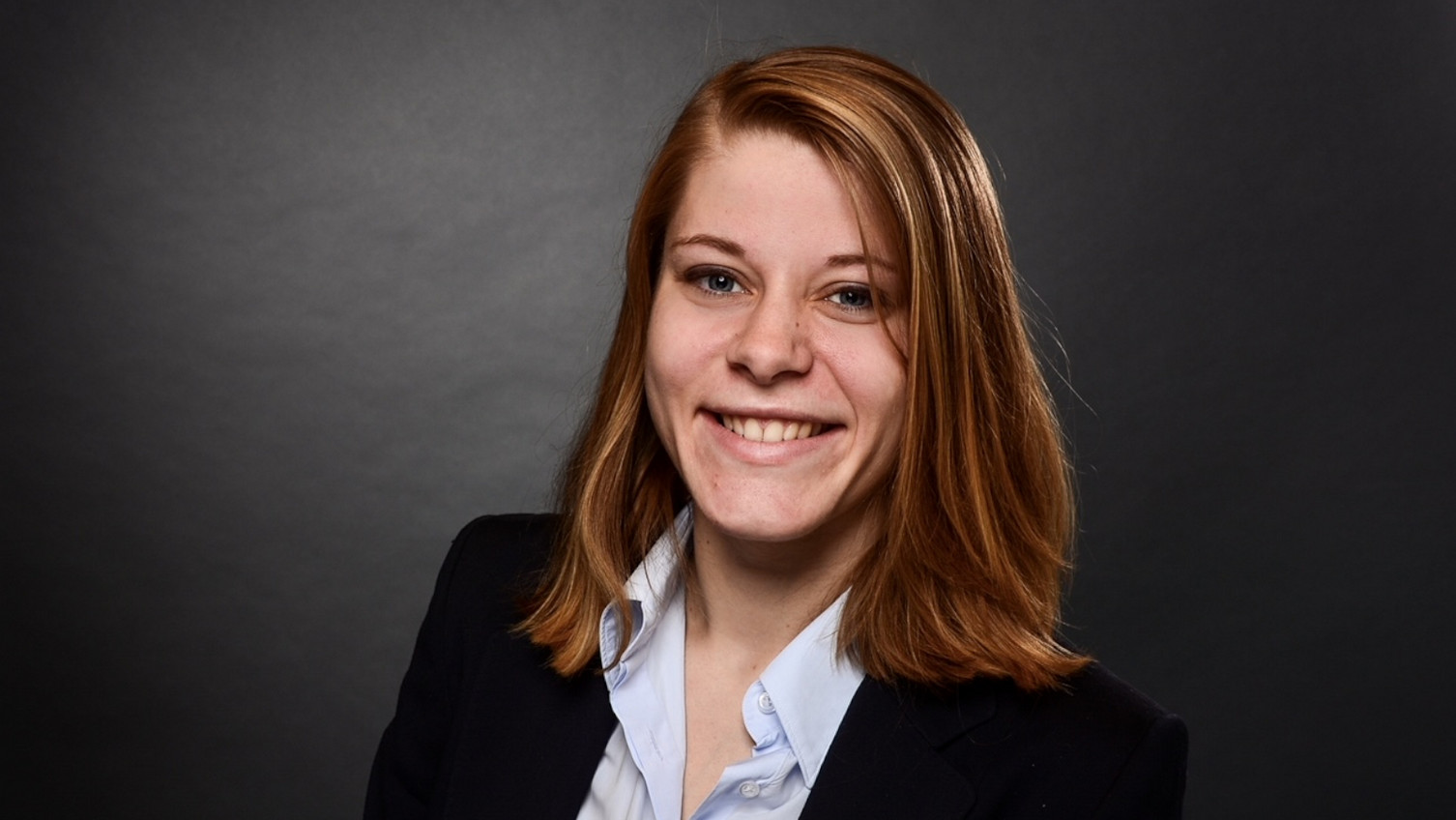 ©Studioline Harburg
©Studioline Harburg
What was your degree programme at Leuphana?
I chose the Master of Science Management & Data Science and graduated in November 2020.
Did you study at Leuphana beyond your Masters degree? If yes, what?
I also completed my Bachelor degree at Leuphana. My major was Business Psychology (B.Sc.), my minor Digital Media / Information Technology & Culture.
What did your career path look like up to that point?
I started working for a small AI consultancy in Berlin as a data scientist and project manager shortly after graduating. I recently moved to the IT consultancy of a large air passenger company in Hamburg, where I focus mainly on AI projects in the field of transport and public transport.
I have learned a lot in the last two years, especially about cloud services, about server infrastructure and of course about general software and DevOps topics. These insights into the IT world have come through my work, and were not part of my more methodical data science studies. My main challenge today is to find a suitable AI use case with companies and implement it together with them. To do this, I look closely at what the organisation actually wants to achieve and where there are difficulties there. For example, if an online shop always answers the same questions in support, couldn't that be automated? Which machine learning models should I use for this and what does the end product look like? We then develop a solution together with the customer and show that machine learning is not that difficult to integrate into a company.
How did you get started?
During my studies, I was able to gain insights in a wide variety of areas. In particular, I was a data scientist at the Institute for Sustainability for two years and supported sustainability projects as a methodologist. In this context, I was able to (co-)give various courses and tutorials and discovered how much I enjoy explaining machine learning to other people and presenting the topic in a way that makes it understandable. I already wrote my psychology Bachelor thesis in the area of digitalization of HR with a focus on algorithms and big data and was able to experience the corporate reality in terms of machine learning and AI in the team with Prof. Deller. So, it's no wonder that today I advise companies on Machine Learning.
When you look back on your time at Leuphana today, I remember that...
... I really enjoyed the wealth of ideas and the joy of innovation. All the events I took part in were full of the feeling that I had my finger on the pulse of the times and was helping to shape current issues. I have always found the overall spirit of the university very enriching.
I always found it fascinating that very few students stubbornly stuck to their subject - in fact, all of them were able to build up a richer horizon, be it on the topic of sustainability through modules and the culture or on the topic of entrepreneurship and start-ups. I am not a pure IT person either: I worked for a while in strategic university development in the President's Office because I advocated for university access opportunities for refugees, for example, through online courses. All this is not on my title "Master of Data Science" and it is also hard to guess.
What surprised you most about studying at Leuphana?
I found it surprising that such an innovative degree programme was offered at all back in 2017, when the topic of Big Data had arrived much less in society. Today, more and more people are working in the field of machine learning, but I was one of the pioneers in 2017.
Before I enrolled, I didn't realise that Leuphana didn't have so many "classic" degree programmes like medicine, mathematics or physics, which are part of the standard repertoire at other universities. However, my concern that my degree programme would be perceived as less valuable as a result was unfounded. I found my own degree programme to be relatively classic, purely in terms of the subject modules, and I didn't have the impression that I was inferior to other universities there in anything.
How did your studies prepare you for your current job?
I learned to look beyond my own nose and to get involved in general social issues. And not only that, I always had the impression that I could also make a difference if I wanted to, because we also frequently got to experience super exciting and disruptive people from the business world at the events described above.
In Data Science, I always liked that many courses were related to online courses and thus had world-class content. This is very essential, especially for us, and this hybrid approach, which is partly desired and partly recommended, has significantly enhanced my data science skills.
The fact that Leuphana offered me a lot of freedom to try things out was also a big advantage!
Were you involved in any voluntary work during your time at Leuphana? If yes, how?
I was active in Enactus during my Bachelor degree, and interestingly enough, I first learned about the Management & Data Science Masters from conversations with other Enactees. When I decided to do the programme, I was the contact person for my fellow students as a subject group representative.
Do you have any tips for current students on applying for jobs and starting a career after graduation?
Every company and every job has a certain focus. My varied degree programme in particular offered me a lot of points of contact, so I actually always had a topic of conversation in the cover letter and the job interview. At some organisations it was helpful that we could talk about a topic I had studied in my complementary studies, at others I could score points (as a supposed IT specialist) with knowledge about OKR [Objectives and Key Results, editor's note] and strategy topics. I found my current job through LinkedIn - so go out and show the world how diverse you are!
Interviewer: Jonas Kernein
Podcast
Contact and Counselling
First contact point
The Information Office (Infoportal) is your contact point for
- general information on the application procedure
- initial questions about the study programmes offered at Leuphana
- making an appointment with the Graduate School Student Counselling Service.
Information Office
Building 8, Ground Level
Fon +49.4131.677-2277
studierendenservice@leuphana.de
Campus opening hours
Mon - Thu 9.00 am - 4:00 pm
Fr 9.00 am - 12 noon
Student Counselling
To make an appointment with our Student Counselling Service, please use our booking tool on our website.

